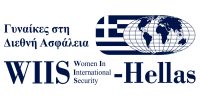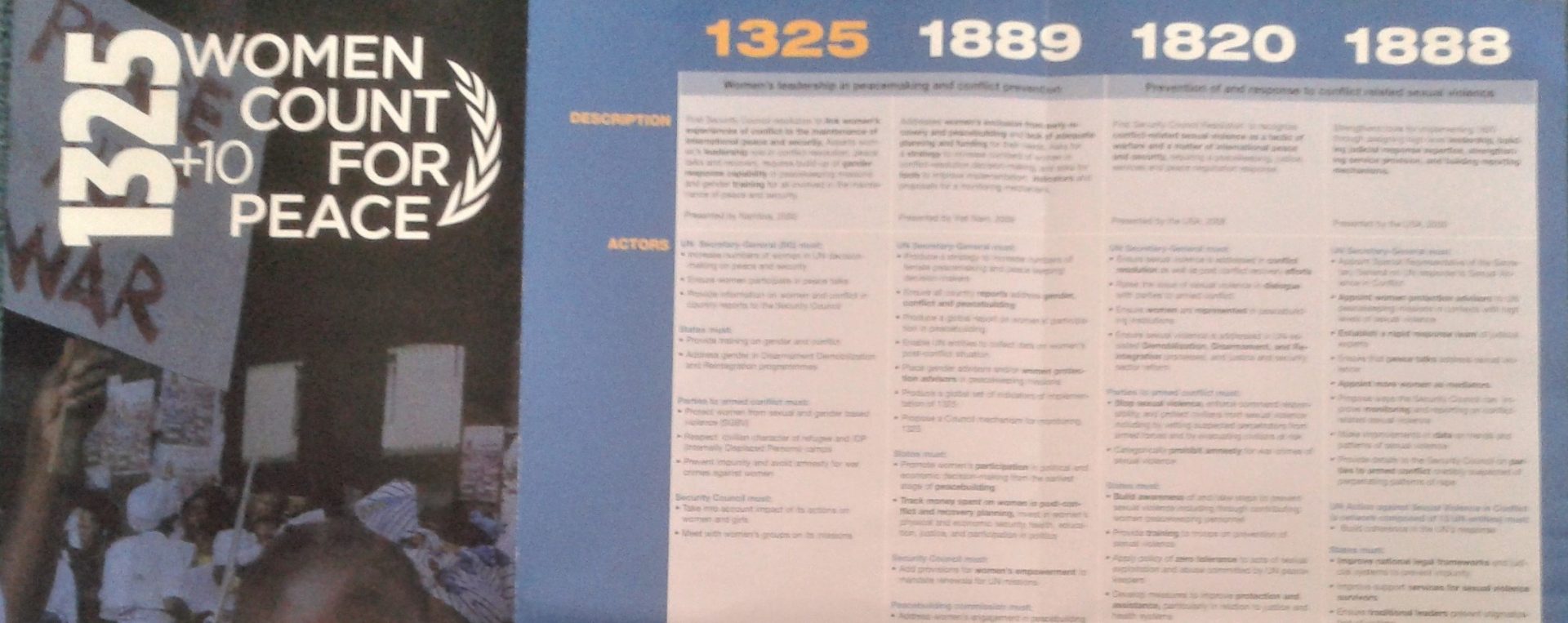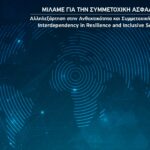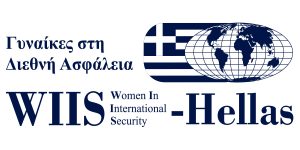Κείμενα & Θέσεις
ΣΧΕΔΙΟ ΔΡΑΣΗΣ σε σχέση με την 1325/Σ.Α. Ο.Η.Ε. ΓΙΑ ΤΗΝ ΕΛΛΑΔΑ
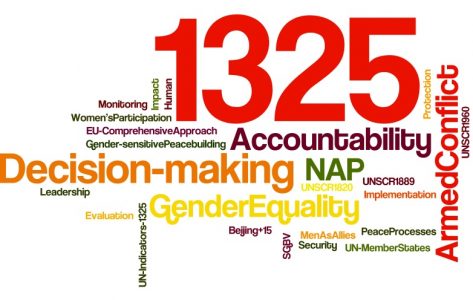
Προτάσεις μετά τη συζήτηση στο 20ο Ετήσιο Διεθνές Συμπόσιο
Ελληνικής Ένωσης για Ατλαντική & Ευρωπαϊκή Συνεργασία
Δεκέμβριος 2010
Το σημείο εκκίνησης στην Απόφαση είναι το γεγονός ότι οι γυναίκες μπορούν και να επηρεάσουν και να επηρεαστούν από τις ένοπλες συγκρούσεις, ότι οι γυναίκες μπορούν να είναι δρώντες αλλά επίσης και ιδιαίτερα ευαίσθητες.
Σήμερα, οι γυναίκες συχνά αποκλείονται από τις ειρηνευτικές διαπραγματεύσεις. Οι γυναίκες συχνά υπο-εκπροσωπούνται στους θεσμούς που εδραιώνονται μέσω ειρηνευτικών συμφωνιών και δε συμμετέχουν στη λήψη αποφάσεων πλήρως ισότιμα με τους άνδρες. Ταυτόχρονα, ενώ ως γυναίκες και ως κορίτσια μπορούν να εμπλέκονται στις εχθροπραξίες ως δρώντες, συχνά είναι επίσης ιδιαίτερα ευαίσθητες κατά τη διάρκεια και μετά τις ένοπλες συγκρούσεις.
ΠΡΟΤΑΣΕΙΣ ΓΙΑ ΤΟ ΣΧΕΔΙΟ ΔΡΑΣΗΣ ΓΙΑ ΤΗΝ ΕΛΛΑΔΑ
Το σχέδιο δράσης πρέπει να αγκαλιάσει τις ακόλουθες αρχές: πρόληψη, προστασία, συμμετοχή και σεβασμός στα ανθρώπινα δικαιώματα.
Κύριες δράσεις:
- Μια ειδική ομάδα εργασίας υπό την ηγεσία του Υπουργείου Άμυνας και με τη συμμετοχή και από άλλα Υπουργεία (όπως το Υπουργείο Εξωτερικών, το Υπουργείο Προστασίας του Πολίτη) και σχετικές μη-κυβερνητικές οργανώσεις μπορεί να εδραιωθεί για να προσφέρει μια πιο συστηματική και συντονισμένη εφαρμογή της Απόφασης 1325 στο εθνικό και διεθνές έργο της Ελλάδας.
Η ομάδα θα έχει δύο καθήκοντα:
Α) να πάρει πρωτοβουλία για προγράμματα, σεμινάρια και άλλες δραστηριότητες προκειμένου να αυξήσει την ευαισθητοποίηση και να εδραιώσει την εφαρμογή της Απόφασης 1325 και
Β) να αναπτύξει και να υποστηρίξει ένα εθνικό σχέδιο δράσης
- Ο σχεδιασμός και τα περιεχόμενα του σχεδίου δράσης θα καθοδηγούνται μέσω διαλόγου με ποικίλες ενδιαφερόμενες πλευρές: κυβερνητικές αρχές, μη-κυβερνητικές οργανώσεις, διεθνείς οργανισμούς και άλλες χώρες.
- Για την εφαρμογή της Απόφασης απαιτείται να δοθεί προτεραιότητα στα παρακάτω ζητήματα:
Α) Η αύξηση της ευαισθητοποίησης για την Απόφαση πρέπει να ακολουθείται από μια βαθύτερη γνώση σε όλα τα επίπεδα όσον αφορά την εφαρμογή της
Β) Όλες οι στρατηγικές και τα προγράμματα πρέπει να συμπληρώνονται από συμπαγείς δράσεις σε συγκεκριμένες καταστάσεις.
Γ) Η σημασία και η αξία της δράσης για την ενδυνάμωση της συμμετοχής και της ασφάλειας, καθώς και η ειδική ευθύνη που οι έχουν οι χώρες ως μέλη των διεθνών οργανισμών και ως συμβαλλόμενοι σε στρατιωτικό ανθρώπινο δυναμικό, πρέπει να γίνουν ξεκάθαρες.
Για την επίτευξη αποτελεσμάτων και τη βελτίωση της καθημερινής ζωής των γυναικών και των κοριτσιών παγκόσμια, απαιτούνται δεσμεύσεις και δράσεις από μεγάλο αριθμό εμπλεκομένων τόσο σε εθνικό όσο και σε διεθνές επίπεδο. Επομένως, το ελληνικό σχέδιο δράσης θα πρέπει να περιλαμβάνει δραστηριότητες για την εφαρμογή της Απόφασης σε τρία επίπεδα:
- σε εθνικό επίπεδο
- στο πλαίσιο της Ευρωπαϊκής Ένωσης και άλλων περιφερειακών οργανισμών, όπως ο ΟΑΣΕ και το Συμβούλιο της Ευρώπης και
- σε παγκόσμιο επίπεδο και πάνω από όλα στο πλαίσιο των Ηνωμένων Έθνών.
Σε εθνικό επίππεδο, η προσπάθεια για την εφαρμογή της Απόφασης 1325 θα πρέπει αρχικά να περιλαμβάνει όλα τα Υπουργεία και τα κυβερνητικά γραφεία που είναι αρμόδια για τη στήριξη της ειρήνης και τις δραστηριότητες που αφορούν δραστηριότητες για την ανάπτυξη της ασφάλειας, τα ανθρώπινα δικαιώματα και τα θέματα ισότητας, όπως και αρχές που εκπαιδεύουν και αναπτύσσουν δυναμικό για διεθνείς επιχειρήσεις ή ασχολούνται με ερευνητικές δραστηριότητες, όπως οι Ελληνικές Ένοπλες Δυνάμεις.
Επίσης, μη-κυβερνητικές οργανώσεις, ερευνητικά ιδρύματα και πρεσβείες θα μπορούσαν να έχουν σημαντικό ρόλο στη διαμόρφωση, εδραίωση και περαιτέρω ανάπτυξη του ελληνικού σχεδίου δράσης. Ειδική έμφαση θα πρέπει να δοθεί στη συμμετοχή γυναικών στις προσπάθειες πρόληψης συγκρούσεων και ιδιαίτερα της πρόληψης μέσω ειρηνικών μέσων διαχείρησης συγκρούσεων και στη συμμετοχή γυναικών σε ειρηνευτικές αποστολές. Επίσης, απαιτείται η εδραίωση επαφών με διεθνή δίκτυα και οργανισμούς που δραστηριοποιούνται στον τομέα της πρόληψης συγκρούσεων.
Σε περιφερειακό επίπεδο, θα πρέπει να επιδιωχθεί η συνεργασία με τους ευρωπαϊκούς θεσμούς. Οι σχετικοί τομείς συνεργασίας θα πρέπει να περιλαμβάνουν την ανάπτυξη της συνεργασίας, τις ανθρωπιστικές αποστολές και την μεταναστευτική πολιτική (όπου είναι σχετική), όπως και η ανάπτυξη, εδραίωση και εκτίμηση των αποστολών διαχείρισης κρίσεων, όπως και άλλων δραστηριοτήτων πρόληψης συγκρούσεων και υποστήριξης της ειρήνης.
Σε παγκόσμιο επίπεδο και μέσα στο σύστημα των Ηνωμένων Εθνών, η Ελλάδα θα στηρίξει και θα επιταχύνει τις δράσεις για την πλήρη εφαρμογή της Απόφασης 1325. Προτεραιότητα θα δοθεί σε έναν αριθμό μέτρων για τα οποία η άμυνα έχει την κύρια ευθύνη αλλά και εκεί όπου η δουλειά θα γίνει σε στενή συνεννόηση με τα άλλα υπουργεία και με την ελληνική αντιπροσωπεία στα Ηνωμένα Έθνη στη Νέα Υόρκη. Επίσης, ειδική προσοχή θα πρέπει να δοθεί στις μορφές συνεργασίας από τα ποικίλα όργανα των Ηνωμένων Εθνών με, στήριξη για και συνεννόηση με εθνικές και τοπικές γυναικείες οργανώσεις σε εμπόλεμες χώρες και χώρες που βρίσκονται σε κατάσταση μετά τη σύγκρουση.
Η Ελλάδα θα πρέπει να εργαστεί για μια πιο συστηματική ανταλλαγή γνώσης, εμπειρίας και πληροφοριών ανάμεσα στους διεθνείς δρώντες. Η Απόφαση 1325 θα πρέπει να είναι ένα απο τα θέματα συζήτησης σε τακτικές διασκέψεις μεταξύ των Ηνωμένων Εθνών και των διεθνών οργανισμών.
Για την ανάπτυξη των παραπάνω, υπάρχει επείγουσα ανάγκη για το σχηματισμό μιας ομάδας εργασίας για την εφαρμογή της Απόφασης 1325.
Ευθαλία (Έλια) Χατζηγιάννη
Γυναίκα & Ασφάλεια
Women, Peace, and Security
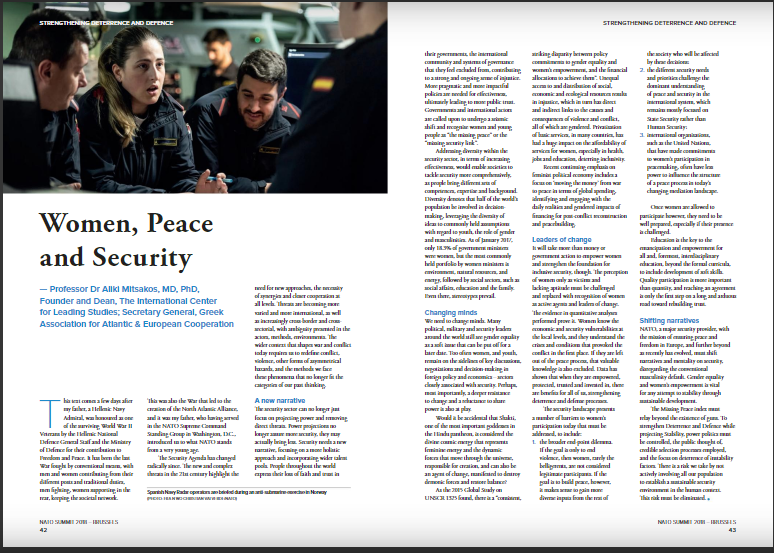
Women, Peace, and Security
Strengthening Deterrence and Defense While Projecting Stability by Prof. Dr. Aliki Mitsakos, M.D., Ph.D. i*
June 15, 2018
This text comes a few days after my father, an H. N. Admiral, was honored as one of the surviving World War II Veterans by the Hellenic National Defense General Staff and the Ministry of Defence for their contribution to Freedom and Peace. It has been the last War fought by conventional means, with men and women contributing from their different posts and traditional duties, men fighting, women supporting in the rear keeping the societal network. This was also the War that led to the creation of the North Atlantic Alliance, and it was my father, who having served in the NATO Supreme Command Standing Group in Washington, D.C., introduced us to what NATO stands for since our very young age.
The Security Agenda has changed radically since. The new and complex threats in the 21st century highlight the need for new approaches, the necessity of synergies and closer cooperation at all levels. Threats are becoming more varied and more international, as well as increasingly cross-border and cross-sectorial, with ambiguity presented in the actors, methods, environments. The wider context which shape war and conflict today requires to redefine conflict, violence, other forms of asymmetrical hazards, and, the methods we face these phenomena that no longer fit the categories of our past thinking.
The security sector can no longer just focus on projecting power and removing direct threats. Power projections no longer assure more security, they may actually bring less. Security needs a new narrative, focusing on a more holistic approach and incorporating wider talent pools. People throughout the world express their loss of faith and trust in their Governments, the international
community and systems of governance that they feel excluded from, contributing to a strong and ongoing sense of injustice. More pragmatic and more impactful policies are needed for effectiveness, ultimately leading to more public trust. Governments and international actors are called upon to undergo a seismic shift and recognize women and the young people as “the missing peace” or the “missing security link”.
Addressing diversity within the security sector, in terms of increasing effectiveness, would enable societies to tackle security more comprehensively, as people bring different sets of competences, expertise, and background. Diversity denotes half of the world’s population be involved in decision making, leveraging the diversity of ideas to commonly held assumptions with regard to youth, the
role of gender, and masculinities. As of January 2017, only 18.3 per cent of government ministers were women but the most commonly held portfolio by women ministers is environment, natural resources, and energy, followed by social sectors, such as social affairs, education and the family. Even there stereotypes prevail.
We need to change minds. Many political, military, and security leaders around the world still see gender equality as a soft issue that can be put off for a later date. Too often women –and youth remain on the sidelines of key discussions, negotiations and decision-making in foreign policy and economics, sectors closely associated with security. Perhaps, most importantly, a deeper resistance
to change and a reluctance to share power is also at play. Would it be accidental that Shakti, one of the most important goddesses in the Hindu pantheon, is considered the divine cosmic energy that represents feminine energy and the dynamic forces that
move through the universe, responsible for creation, and can also be an agent of change, manifested to destroy demonic forces and restore balance?
As the 2015 Global Study on UNSCR 1325 found, there is a “consistent, striking disparity between policy commitments to gender equality and women’s empowerment, and the financial allocations to achieve them”. Unequal access to and distribution of social, economic and ecological resources results in injustice which in turn has direct and indirect links to the causes and consequences of
violence and conflict, all of which are gendered. Privatization of basic services, in many countries, have had a huge impact on affordability of services for women, especially with regard to health, jobs and education, deterring inclusivity.
Recent continuing emphasis on feminist political economy includes a focus on ‘moving the money’ from war to peace in terms of global spending, identifying and engaging with the daily realities and gendered impacts of financing for post-conflict reconstruction and peacebuilding. It will take more than money or government action to empower women and strengthen the foundation
for inclusive security though. The perception of women only as victims and lacking aptitude must be challenged and replaced with recognition of women as active agents and leaders of change. The evidence in quantitative analyses performed prove it. Women know the economic and security vulnerabilities at the local levels, and they understand the crises and conditions that provoked the
conflict in the first place. If they are left out of the peace process, that valuable knowledge is also excluded. Data has shown that when they are empowered, protected, trusted and invested in, there are benefits for all of us, strengthening deterrence and defense processes. The security landscape presents a number of barriers to women’s participation today that must be addressed to include:
1. the broader end point dilemma. If the goal is only to end violence, then women, rarely the belligerents, are not considered legitimate participants. If the goal is to build peace, however, it makes sense to gain more diverse inputs from the rest of the society who will be affected by these decisions.
2. the different security needs and priorities challenge the dominant understanding of peace and security in the international system, which remains mostly focused on State Security rather than Human Security.
3. international organizations, like the U.N., that have made commitments to women’s participation in peacemaking often have less power to influence the structure of a peace process in today’s changing mediation landscape.
Once women are allowed to participate however, they need to be well-prepared, especially if their presence is challenged.
Education is the key to the emancipation and empowerment for all, and, foremost, interdisciplinary education, beyond the formal curricula, to include development of soft skills. Quality participation is more important than quantity, and reaching an agreement is only the first step on a long and arduous road toward rebuilding trust.
NATO, a major security provider, with the mission of ensuring peace and freedom in Europe, and further beyond as recently has evolved, must shift narratives and mentality on security, disregarding the conventional masculinity default. Gender equality and women’s empowerment is vital for any attempt to stability through sustainable development.
The Missing Peace index must relay beyond the existence of guns. To strengthen Deterrence and Defense while projecting Stability power politics must be controlled, the public thought of, credible selection processes employed, and focus be on deterrence of instability factors.
There is a risk we are taking by not actively involving all our population to establish a sustainable security environment in the human context. This risk must be eliminated.
i * Women In International Security – Hellas Greek Association for Atlantic & European Cooperation, Secretary General & Chair of
Education – www.gaaec.org The International Center for Leading Studies, Dean & Founder – www.ticls.org
